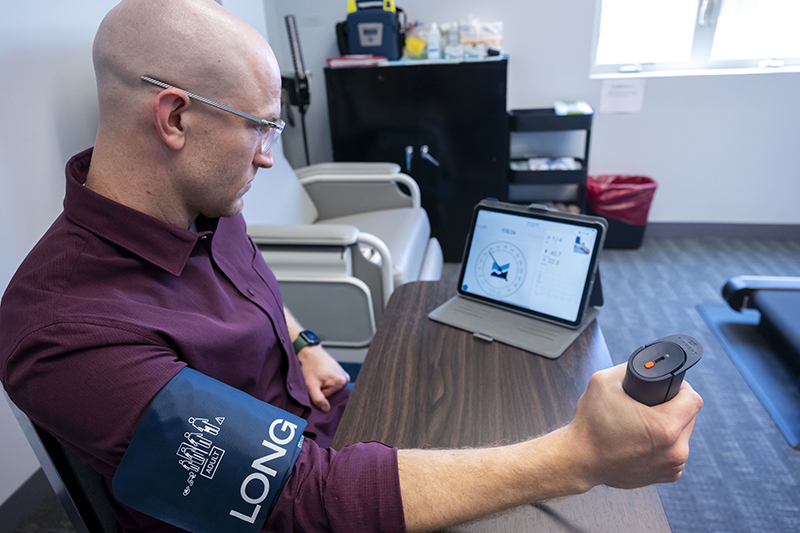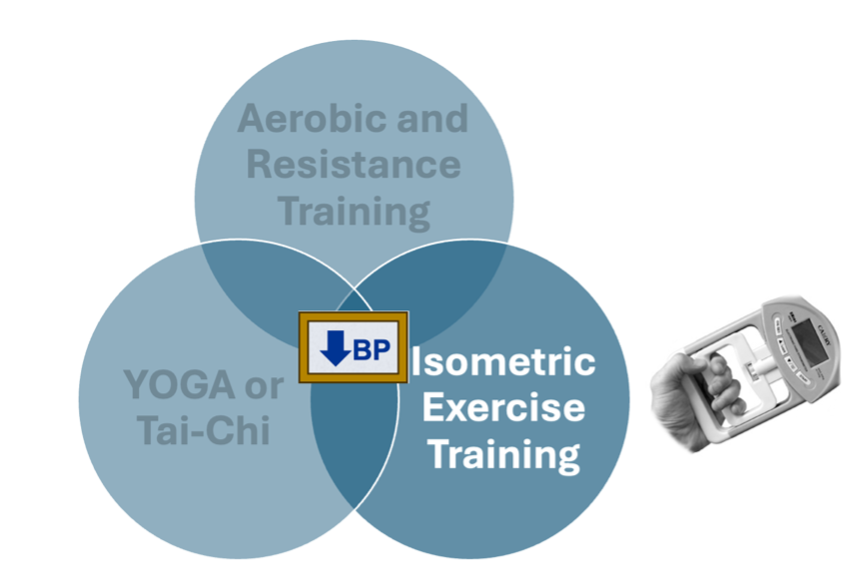
Coordinated by Assistant Professor Benjamin DH Gordon
The Pittsburgh Iso-Tension Lab (PIT) at the PARC carries out research studies investigating the effects of novel non-pharmacological exercise interventions to prevent and manage elevated blood pressure and hypertension in adults. Specifically, the PIT lab focuses on deploying a lesser known but highly promising modality of exercise: isometric exercise training (IET) to lower blood pressure. While isometric exercise has been shown to lower blood pressure using various modalities, the PIT lab emphasizes the simplicity and convenience of isometric handgrip exercise using handgrip dynamometers. This research in partnership with our global collaborators involves resting and 24-hour ambulatory blood pressure, inflammatory and vasoactive biomarkers, and arterial stiffness as outcome measures of interest.
Research Area
Hypertension (HTN) affects 74% of those over 60 years of age. Despite advancements in pharmacotherapy, the burden of HTN with aging is significant. Treatment nationally is poor, with an increase in prevalence from 63.6% (65 years) to 75% (>75 years) in one decade. Physical activity is a first-line lifestyle strategy and includes walking, measured in daily steps for BP control and reduced cardiovascular risk. Meta analyses have shown average BP reductions of 2-4 mmHg for all populations engaging in aerobic or dynamic resistance exercise. A unique form of resistance exercise – isometric exercise training; IET – may be especially potent in reducing BP and has been investigated primarily via handgrip exercise. In our lab, we like to say that “heart health is in your hands”… quite literally with the work we do.

